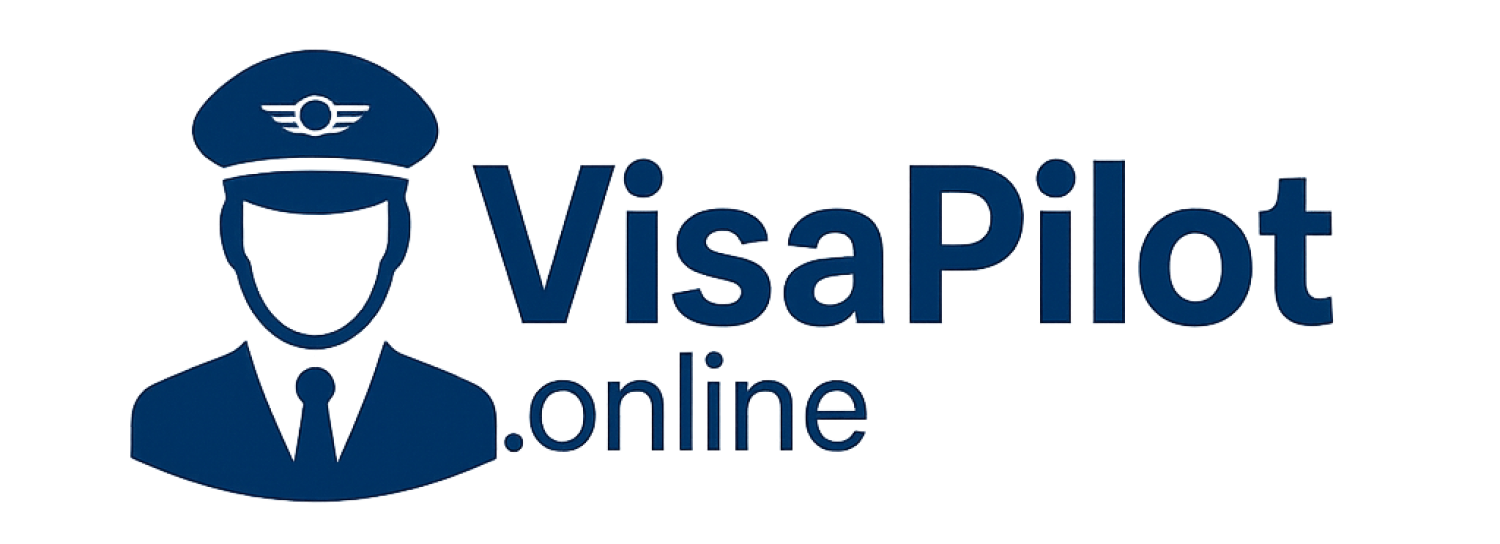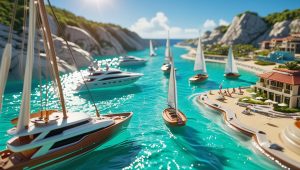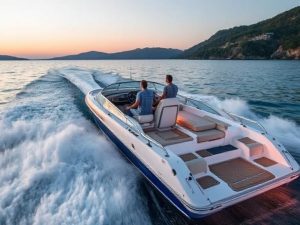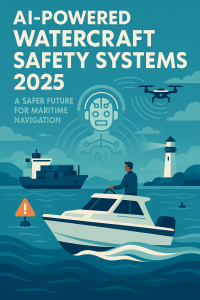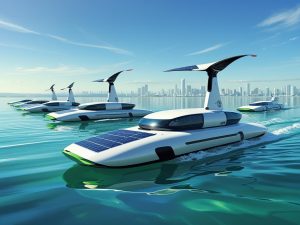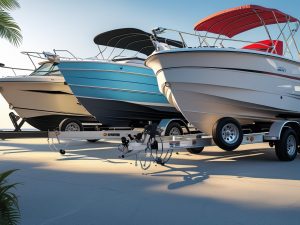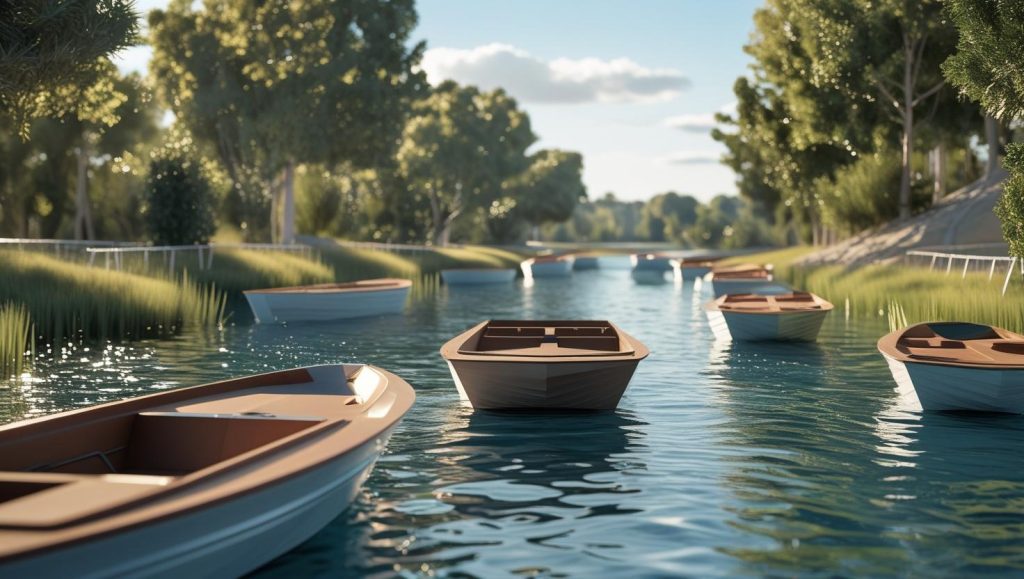
Boating is one of the most relaxing and adventurous ways to explore the outdoors. Whether you’re piloting a small sailboat, a kayak, or a pontoon, the experience can be exhilarating. But for beginners, safety is key. Choosing the right waterway can make all the difference between a serene day on the water and a stressful ordeal.
In this guide, we’ll explore the safest waterways for boating beginners in 2025. Whether you’re looking for calm lakes, gentle rivers, or protected coastal areas, we’ll break down the top choices, what makes them beginner-friendly, and tips to stay safe. Plus, we’ll answer frequently asked questions (FAQs) to help you prepare for your next boating adventure.
Why Waterway Safety Matters for Beginners
Before we dive into specific waterways, it’s important to understand why beginners should be selective about where they start boating.
-
Weather unpredictability: Some waterways are more prone to sudden weather changes.
-
Traffic congestion: Busy waterways with commercial ships or high-speed boats can be dangerous for newbies.
-
Currents and tides: Strong currents or tides can overwhelm beginner boaters.
-
Navigation challenges: Complex coastlines or lack of clear markers can lead to confusion or accidents.
Safe boating environments allow beginners to learn the ropes, build confidence, and enjoy their time without constant stress.
Top 10 Safest Waterways for Boating Beginners in 2025
These locations are chosen based on criteria like calm waters, minimal traffic, safety infrastructure, and availability of boating services and rentals.
1. Lake George – New York, USA
Lake George in the Adirondacks is often called the “Queen of American Lakes.” It stretches 32 miles but features protected bays, making it ideal for new boaters.
Why it’s beginner-friendly:
-
Calm, non-tidal waters
-
Clear navigation markers
-
Numerous boat rental shops
-
Family-friendly environment
Tips:
-
Stick to southern bays for calmer conditions
-
Take advantage of guided beginner boat tours
2. Lake Windermere – England, UK
Located in the Lake District, Lake Windermere is England’s largest natural lake. It’s popular for leisure boating and has a long tradition of safe boating practices.
Why it’s beginner-friendly:
-
Gentle water flow
-
Speed restrictions for motorboats
-
Availability of boating instructors and lessons
Tips:
-
Early morning is best for calm waters
-
Take a short course at Windermere Lake Cruises
3. Lake Taupo – New Zealand
New Zealand’s largest lake is a hotspot for water sports, yet it’s incredibly safe for beginners, thanks to stable weather patterns and well-developed boating infrastructure.
Why it’s beginner-friendly:
-
No tides or dangerous currents
-
Wide open space and clear visibility
-
Great emergency response services
Tips:
-
Check in with Taupo Marina for a beginner boating map
-
Rent a boat with a guide if unsure about navigation
4. Lake Union – Seattle, Washington, USA
Nestled in the heart of Seattle, Lake Union offers urban boating with controlled speeds and safety regulations—perfect for those new to the water.
Why it’s beginner-friendly:
-
Calm, inland lake
-
Proximity to emergency services
-
Easy access to marinas and boat rentals
Tips:
-
Stay near the northern section for less traffic
-
Avoid peak times (late afternoons and weekends)
5. Rideau Canal – Ontario, Canada
This UNESCO World Heritage Site is not just historical—it’s a safe, beginner-friendly waterway offering calm boating conditions between Ottawa and Kingston.
Why it’s beginner-friendly:
-
Low speed limits
-
Lock systems for gradual elevation changes
-
Minimal commercial traffic
Tips:
-
Start with short segments between locks
-
Consider joining a local boating club for guidance
6. Lake Bled – Slovenia
Small, picturesque, and peaceful—Lake Bled is ideal for rowboats and electric boats. With its emerald green waters and a church on an island, it’s as photogenic as it is safe.
Why it’s beginner-friendly:
-
Strict boating regulations
-
Only non-motorized or electric boats allowed
-
Shallow and small enough to navigate easily
Tips:
-
Rent a rowboat and circle the island at your own pace
-
Follow the local boating code posted at rental stations
7. Lake Havasu – Arizona, USA
Lake Havasu may be known for parties during spring break, but its southern end is calm and ideal for beginners, especially during weekdays.
Why it’s beginner-friendly:
-
Controlled entry points
-
Plenty of dockage and signage
-
Clear, warm waters
Tips:
-
Avoid the northern areas near the London Bridge during peak hours
-
Check local rules on speed zones
8. Loch Lomond – Scotland, UK
This expansive freshwater loch is known for its calm inlets and strong safety standards. Local services make it easy for beginners to learn safely.
Why it’s beginner-friendly:
-
Speed limits enforced
-
Multiple sheltered bays
-
Beginner sailing schools available
Tips:
-
Explore sheltered eastern shores
-
Book a safety demonstration before venturing out
9. Chesapeake Bay – Maryland/Virginia, USA
While the bay is huge, certain areas such as the Miles River or Severn River arms are quiet and shallow, perfect for those learning to boat.
Why it’s beginner-friendly:
-
Protected coves and inlets
-
Strong community boating programs
-
Active Coast Guard and local patrolling
Tips:
-
Start from Annapolis for the best beginner experiences
-
Download the Chesapeake Smart Buoy app for real-time conditions
10. Lake Geneva – Switzerland
One of Europe’s cleanest and safest lakes, Lake Geneva provides both beauty and security for boating newbies.
Why it’s beginner-friendly:
-
Limited speed boating zones
-
Strict licensing and rental checks
-
Calm conditions for much of the year
Tips:
-
Use designated beginner boat lanes
-
Stay close to Geneva harbor for ease of docking
Safety Tips for First-Time Boaters
Even the safest waterways require you to follow basic safety procedures. Here are key tips to ensure a smooth experience:
-
Always wear a life jacket – even if you’re a strong swimmer.
-
Check the weather – avoid boating in windy or stormy conditions.
-
Use proper navigation tools – GPS, compass, and local maps.
-
Carry safety equipment – flares, whistle, flashlight, first aid kit.
-
Take a boating course – many local authorities offer free or affordable classes.
-
Don’t overload the boat – stick to weight capacity guidelines.
-
Stay sober – alcohol impairs judgment and reaction time.
-
Know the local rules – each waterway may have its own regulations.
Best Types of Boats for Beginners
If you’re new to boating, choose a vessel that is easy to maneuver and control. Below are popular beginner options:
| Boat Type | Why It’s Beginner-Friendly |
|---|---|
| Pontoon Boats | Stable and hard to flip |
| Kayaks | Lightweight and perfect for solo adventures |
| Jon Boats | Inexpensive and simple to use |
| Bowriders | Great for calm lakes and family fun |
| Electric Boats | No fuel, quiet, and easy to control |
Choose based on your comfort level, waterway type, and how many passengers you plan to have.
How to Find Safe Boating Locations Near You
If you’re looking to start boating but can’t travel to one of the destinations above, use these resources to find safe locations near you:
-
Local Boating Clubs: Offer beginner training and safe spots
-
Google Maps: Look for “no-wake zones” and protected bays
-
State or National Park Websites: Often list boating safety levels
-
Marine Navigation Apps: Like Navionics, iNavX, and Aqua Map
FAQs About Boating for Beginners
1. What is the best time of year for beginner boating?
Spring and early summer (April–June) are often ideal in most regions due to calmer weather and fewer boats on the water.
2. Do I need a license to operate a boat as a beginner?
It depends on the location. In the U.S., most states require a boater education card or license. Check your local laws before heading out.
3. Are inflatable boats safe for beginners?
Yes, high-quality inflatable boats with multiple air chambers and rigid floors can be quite stable and safe, especially in calm waters.
4. Can I boat alone as a beginner?
While you can, it’s highly recommended that beginners boat with a partner or group, especially on their first few trips.
5. What apps can help beginner boaters?
-
Navionics – Marine GPS navigation
-
BoatUS – Safety info and towing
-
Windy – Weather and wind conditions
-
MyRadar – Real-time radar tracking
6. How do I know if a waterway is beginner-safe?
Look for signs of:
-
Calm, non-tidal waters
-
Clearly marked navigation buoys
-
Active patrol or emergency services
-
Boating schools or beginner tours
Conclusion: Start Your Boating Adventure Safely
Boating can be one of the most rewarding outdoor hobbies—if done safely and responsibly. Choosing a beginner-friendly waterway ensures you can focus on learning and enjoying rather than worrying.
Whether you’re exploring the gentle waves of Lake George, paddling across Lake Bled, or cruising down the Rideau Canal, 2025 offers amazing and safe places for new boaters. Just follow local laws, wear your life jacket, and bring along a sense of adventure.
